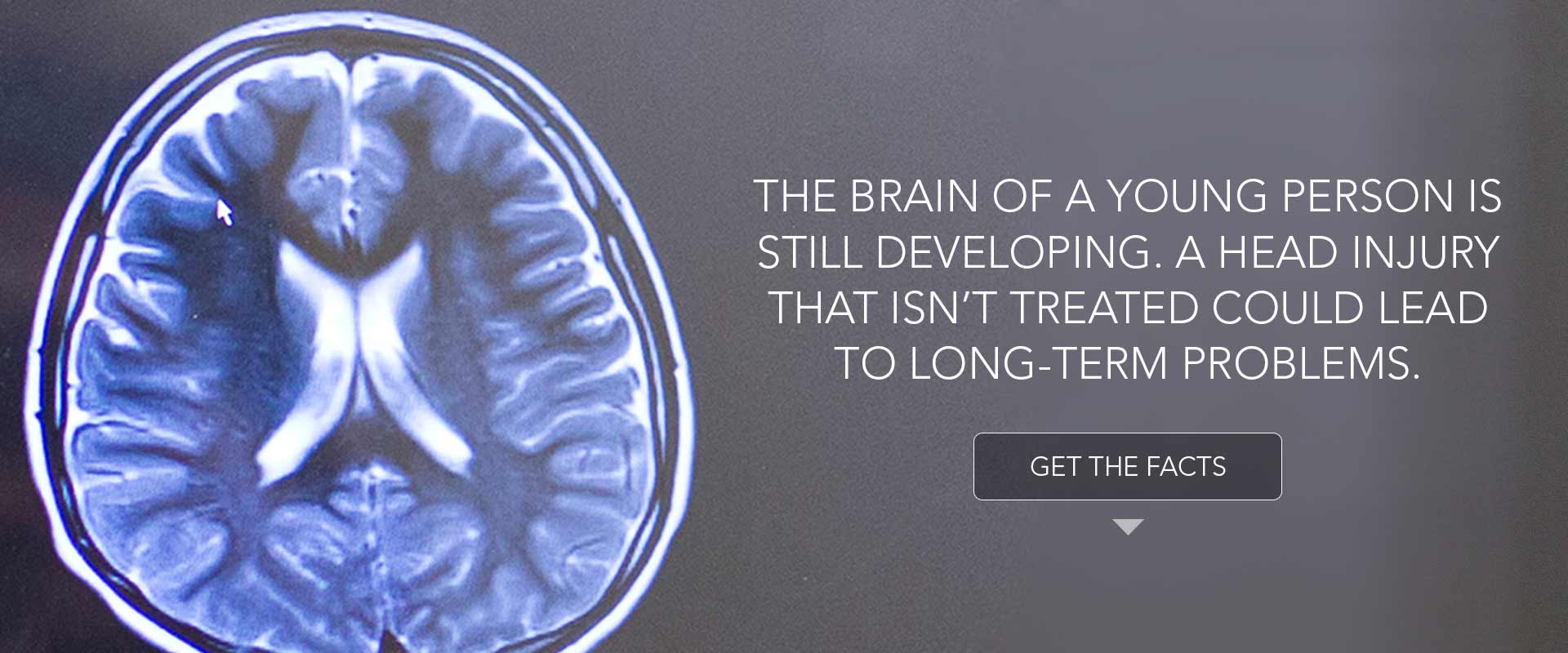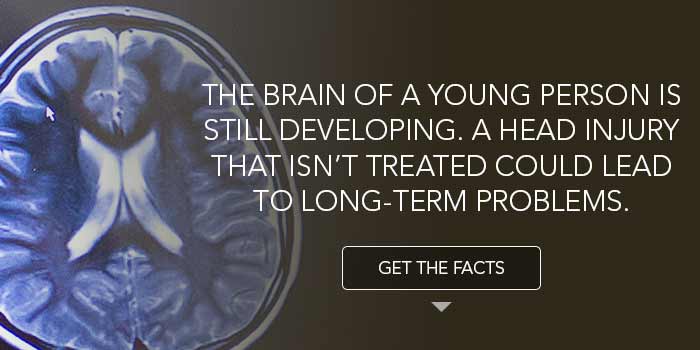Home » Articles » Facts About Concussion: Symptoms and Treatments
Facts About Concussion: Symptoms and Treatments
- The signs of a concussion range from the obvious to the not-so-obvious. They can include headache, dizziness and feeling “foggy” as well as unusual symptoms like sadness, repeating questions, tingling and trouble falling asleep.
- Even a mild concussion should be evaluated by a doctor. Get in to see your child’s pediatrician or primary care doctor as soon as possible. When a concussion is severe or symptoms won’t go away, a specialist may be needed.
- Symptoms may take up to a day to appear after an incident.
- A concussion doesn’t always cause unconsciousness.
- More than 85 percent of concussions heal fine, but only if managed correctly in the first days to weeks following the injury.
- Whether it’s embarrassment or the pressure to keep playing, a young athlete may not admit they had a concussion. Encourage them to come forward if they have an injury, or if they notice a teammate is injured.
- The most important thing to do if someone is injured during a sports activity is to immediately stop playing. They need to avoid any further hits, jolts, shakes or bumps to the head or spine.
- For 24-48 hours after a concussion, your child needs mental rest—and that doesn’t mean they can spend the day watching Netflix. They should limit activities like television, texting, social media, reading, driving, doing homework, social interaction and attending loud events.
- When it comes to returning to sports, symptoms must be resolved first. Athletes should get medical clearance from a doctor before they get back in the game.
- One concussion is rough enough, but research has shown that repeated jars to the head can have lasting effects on the brain. And, if a second concussion is sustained before the first concussion heals, they are at risk for a life-threatening condition called Second Impact Syndrome.
- The brain of a young person is still developing. That means a head injury that isn’t treated could derail their brain from developing properly, leading to long-term problems.















